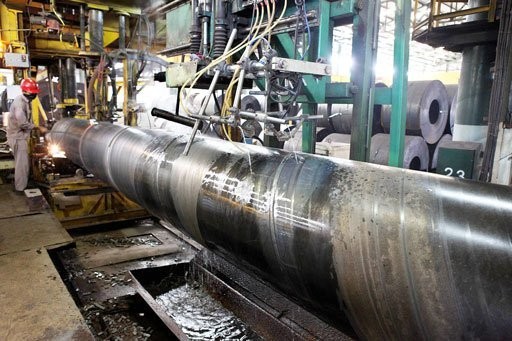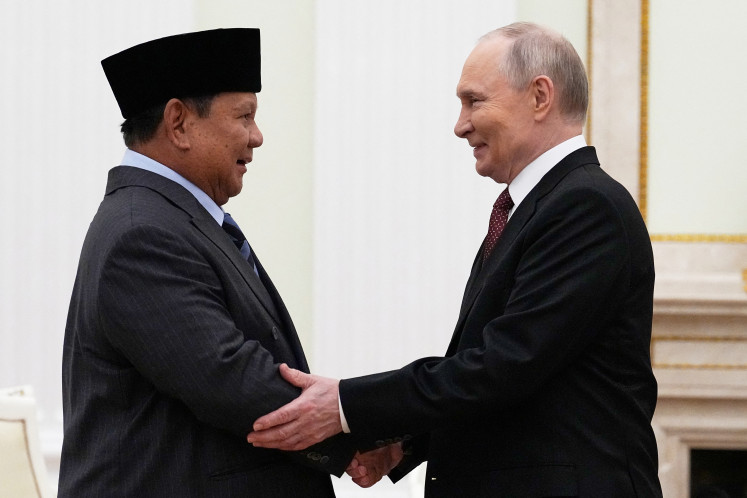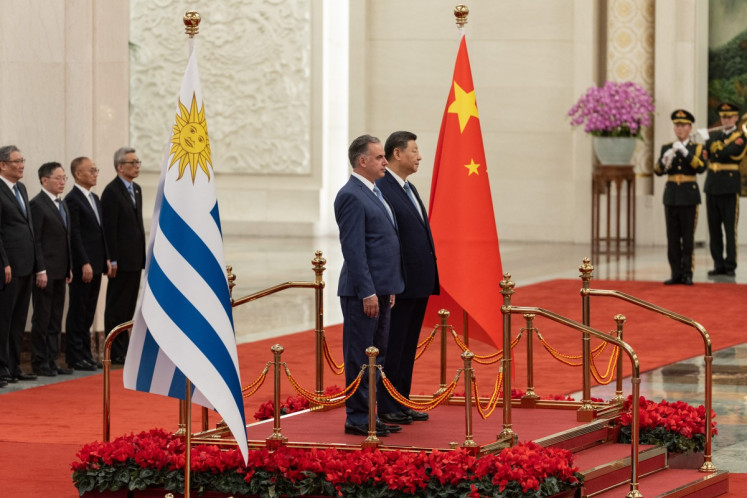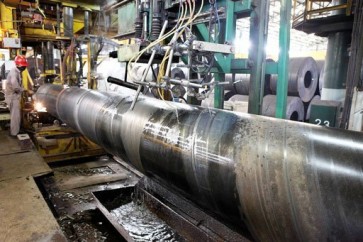Popular Reads
Top Results
Can't find what you're looking for?
View all search resultsPopular Reads
Top Results
Can't find what you're looking for?
View all search resultsSteel producers against imports liberalization
“Even now with import restrictions still in place, imports already control about 55 to 60 percent of our annual steel consumption of around 12 million tons, while our own steel industry operates only at 40 percent of its capacity,” says Hidayat Triseputro, the executive director of the Indonesian Iron and Steel Industry Association.
Change text size
Gift Premium Articles
to Anyone
D
omestic basic steel producers have raised concerns over the government’s plan to further liberalize steel imports as part of a concerted program to improve Indonesia’s position in the World Bank’s annual The Ease of Doing Business Index which now ranks Indonesia 91st out of about 185 countries.
“Even now with import restrictions still in place, imports already control about 55 to 60 percent of our annual steel consumption of around 12 million tons, while our own steel industry operates only at 40 percent of its capacity,” says Hidayat Triseputro, the executive director of the Indonesian Iron and Steel Industry Association.
Data at the trade ministry show Indonesia is now the world’s third biggest net importer of steel and steel trade deficit last year exceeded US$6 billion, the second largest after the oil and gas trade deficits.
Hidayat expressed fear that further import liberalization would damage the national steel industry, which is still at an infant stage of development, because a good portion of the foreign steel entering the country did not meet the national quality standard (SNI).


















